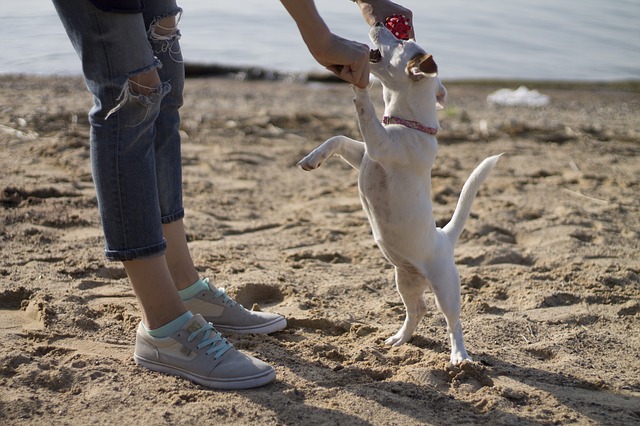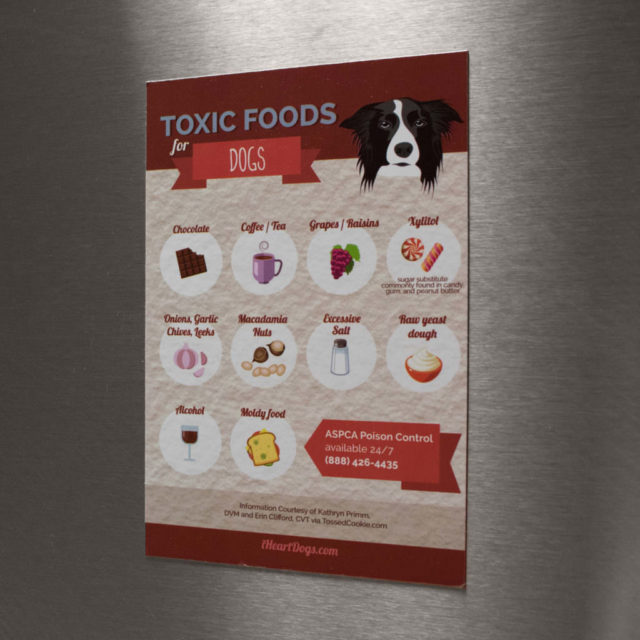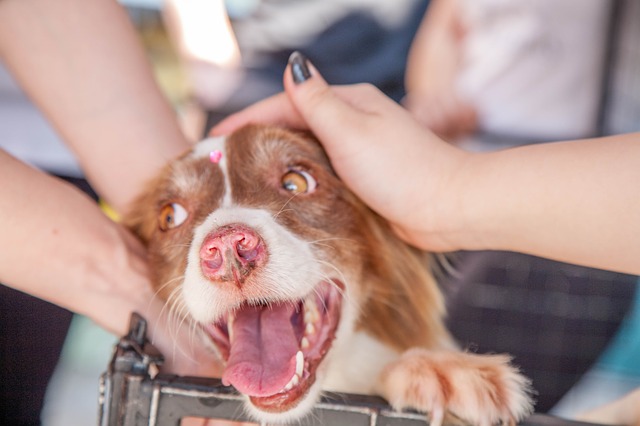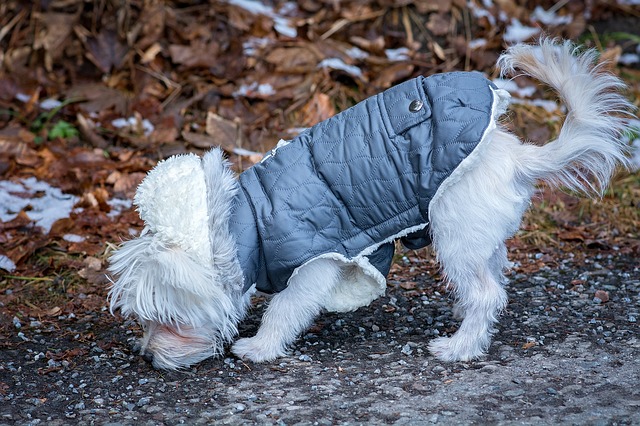Dogs can learn to perform incredible tasks. Some safeguard our very lives by detecting explosives or alerting us to dangers in the home. But there are certain things our pups just cannot do without our help.
When it comes to health and safety, they depend on us to make the best decisions on their behalf. Every pawrent should do the following 10 things for their dogs’ wellbeing because they do so much for us!

1. Watch their waistlines.
Dogs cannot comprehend the consequences of overeating or scarfing down unhealthy foods. It is up to us to choose a healthy diet that suits their needs and measure out their meals appropriately. Our pups should also remain active throughout their lives to stave off weight gain as well as anxiety and boredom.
Check out advice from veterinarian, Dr. Kathryn Primm for keeping your dog at a healthy weight.
2. Keep toxic foods and chemicals out of reach.
Some of the foods that humans enjoy can make our dogs sick or even cause life-threatening illnesses. As their caretakers, we are responsible for knowing which items to share with our pups and which to avoid.
Certain chemicals can also pose a threat to curious dogs. Antifreeze and rodent baits are extremely deadly and notorious for attracting pets.
*The ASPCA Animal Poison Control Center is available 24/7 by calling (888) 426-4435

3. Understand the importance of dental health.
Caring for your dog’s teeth helps prevent bad breath, periodontal disease, and painful tooth decay. Even more importantly, a healthy mouth promotes a healthy body! Studies have shown that severe dental disease can cause microscopic damage to your dog’s heart, liver and kidneys, contributing to serious organ disease.
Several products including chew toys, treats, oral sprays and antimicrobial wipes are available to help you maintain your dog’s dental health at home.
*Remember, there is no substitute for professional veterinary care when it comes to dental health.
4. Prioritize bathing and grooming.
For humans, bathing and tending to our hair and nails is mostly cosmetic. For dogs, it is a vital aspect of their overall health and wellbeing. Their skin – the largest organ of the body – is completely covered in hair, meaning that healthy skin and healthy haircoat go hand-in-hand.
Regular bathing and brushing provide owners with the chance to look for abnormalities like dry, itchy skin, lumps and bumps, or fleas and ticks. They also stimulate the hair follicles to release healthy oils that keep the skin moisturized and the coat shiny.
Another important aspect of grooming is regular toenail trims. Overgrown nails can lead to painful snags, ingrown nails and even alter your dog’s gait causing arthritis and bone changes.

5. Don’t forget the ears!
Ear problems are the number one reason dogs visit the veterinarian. Itchy, painful, stinky ears can be downright miserable for you and your pup. One way to help promote ear health at home is to check and/or clean them each time you tend to your dog’s home bathing and grooming needs.
Simply lift the pinna (outer ear flap) and wipe away debris and wax with a cleansing cloth or ear cleanser.
*Note: If your dog is shaking his head or digging at his ears, seek veterinary attention before applying anything to the ear canals.
6. Socialize and train them with people and other pups.
Proper socialization is a vital part of raising a happy, well-behaved dog. Without this important step in their development, pups are more likely to experience fear, anxiety and aggression later in life. While early training and socialization are best, older dogs can absolutely learn to interact with humans and other pets. A professional trainer can assist you and your pooch at any life stage.

7. Set boundaries.
The American Humane Association estimates that over 10 million dogs and cats are lost or stolen in the U.S. every year. The risk is especially high for pets allowed to roam free. As much as our pups enjoy fresh air and exercise, they should always have a responsible human by their side.
Staying safely on a leash or monitored in a fenced yard not only prevents them from going missing, it protects them from countless potential hazards like dangerous roads and other animals.
Having your dog microchipped is a smart precaution to take in case the unthinkable should occur.
8. Protect them from the elements.
As we noted above, dogs love spending time outdoors. They chase their ball on a summer day or romp through the winter snow with no regard to the potential dangers the elements pose. It is up to us as pup parents to know the risks and learn how to safeguard against them.
Hot weather brings the chance of heat stroke, sunburn and blistered or scraped paw pads. Winter can be even more harsh with the threat of slips and falls, frostbite, anti-freeze poisoning and hypothermia.

9. See the vet regularly.
Semi-annual vet visits are about much more than just vaccines and parasite prevention. They give your dog’s doctor the chance to monitor any changes in weight, appearance and behavior that could indicate a potential problem. Since dogs age more rapidly than we do, catching a serious health issue sooner rather than later is especially important.
10. Provide senior care when the time comes.
Dogs can be very stoic when it comes to their physical health, but when they become seniors they need our help more than ever. As loving owners it is up to us to notice and take action when they begin to show subtle signs of joint pain, poor dental health and dry, flaky coat. While many senior issues can be vastly improved with small lifestyle changes and natural supplements, it is also important to visit the vet more frequently since your dog’s risk for serious health problems increases with age.
H/T to DogTime.com

